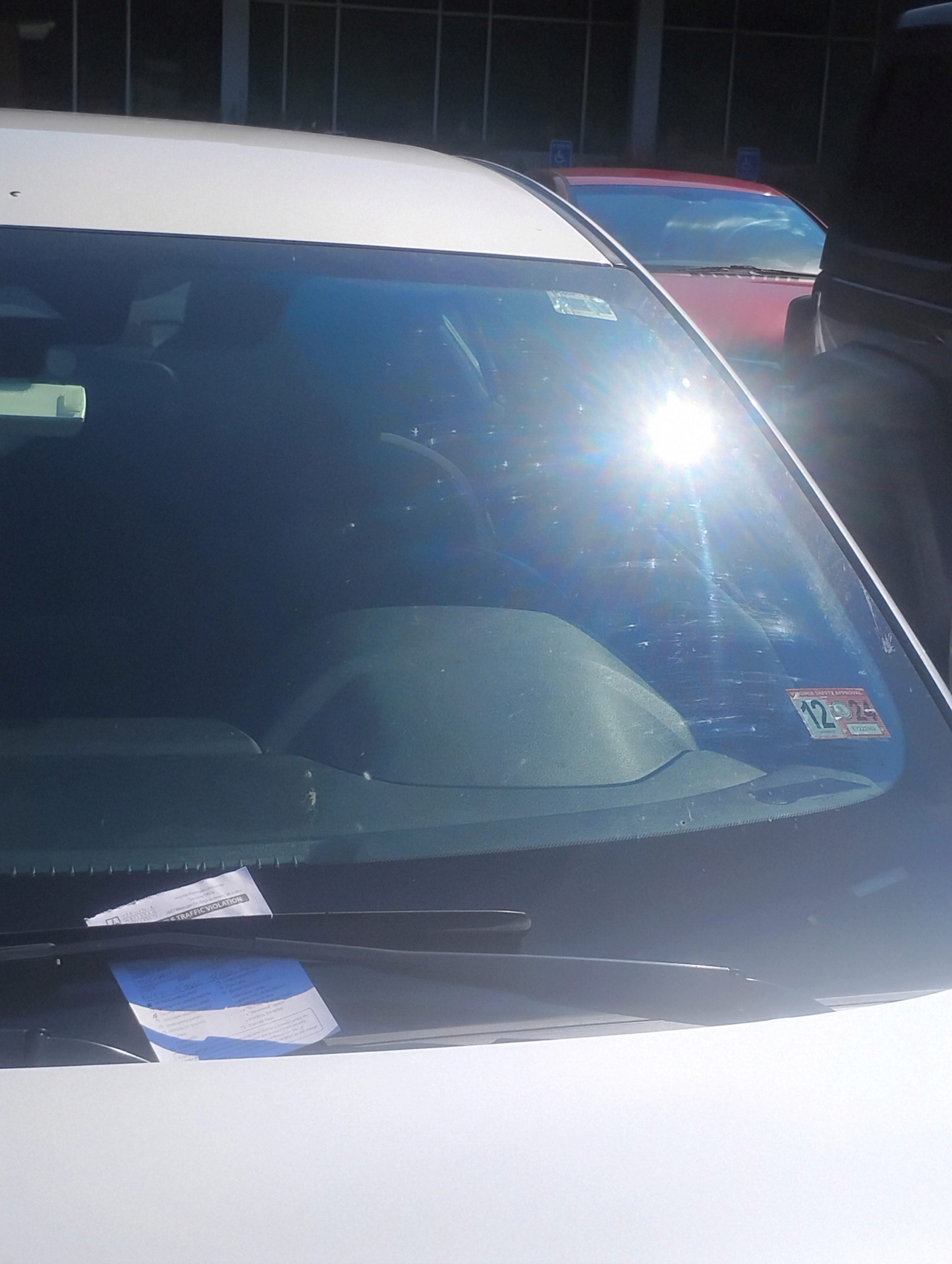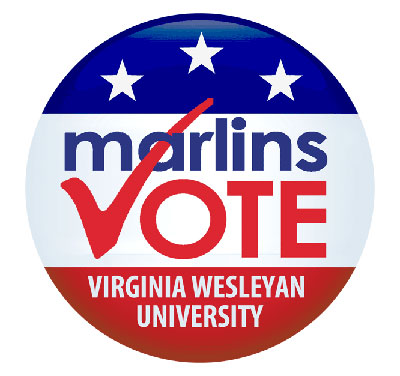Security issues most tickets for lacking decals, like this white sedan, or for parking in reserved spots.
Isaac Fick|Marlin Chronicle
Jason Seward, Associate Vice President for Campus Life and Operational Management responds to reduced proportion of registration.
Despite no fewer students having vehicles on campus this year, administrative members have reported fewer registrations for parking passes than years past.
As specified by Associate Vice President for Campus Life and Operational Management Jason Seward, “we have seen an issue this year, more so than years past, of students not registering their vehicles.”
Seward expanded on the consequences of this. “Students have been ticketed for not having their vehicle registered,” Seward said. “If you’re not registered with a current decal for the specific year, it’s a parking ticket.”
As outlined in the Virginia Wesleyan University website, parking and traffic violations are $50, with exception to parking in a handicapped parking space or fire line, which is a fine of $100.
According to the Old Dominion University website, most violation fines range from $15 to $250 depending on the violation. Christopher Newport University’s website shows that fines range from $10 to $80, with the greatest violation reaching $500. Citations for all institutions must be appealed within 7 days of the violation.
“If anybody wants to speak about a parking violation that they’ve gotten from security, all they need to do is reach out to the security office,” Seward said.
“The violations are a bit much,” junior and commuter Brennan Black said. He said that while he has not received any tickets himself, “I see people get them at the beginning of each semester, especially with the freshmen.”
“It … shouldn’t be $50 for parking in a faculty parking spot,” junior Ryan Koval said.
Concerning faculty parking spots, Koval had additional suggestions. He expressed that “the faculty parking spaces should only be reserved during certain times and during the school week M-F.”
“If they are available for students to park in on the weekends then it should be stated clearly on the signs,” Koval said.

Row of reserved faculty/staff parking spots behind Allen Village.
Isaac Fick|Marlin Chronicle
Seward acknowledged the areas designated to faculty/staff parking, but said “it’s a lot less than it used to be.” He added, “there used to be restricted areas throughout and we really opened parking.”
According to Seward, students often do not get ticketed other than for an unregistered vehicle. “We don’t really have an issue with people parking in handicap spaces or in fire lanes or things like that, because they’re clearly marked,” Seward said.
Seward noted that occasionally students will park in the faculty/staff parking overnight. He added that in this case, if a student does not move their vehicle by the next morning, they will receive a ticket.
The purpose of vehicles being registered on campus is to ensure anyone entering campus has business or reason to be on campus, as stated by Seward.
“We want to know what everyone’s business here on campus is,” Seward said. “It’s an easy way to identify.”
Corresponding with this, Seward clarified the reason for the specific location of decals, being the driver’s side of the windshield. In that location, the decals are “easily seen as they come through the gate,” Seward said. “That signifies that we have somebody approaching the gate that is supposed to be here.”
Black outlined that vehicle registration is not a difficult process. “It’s pretty straightforward for the most part, registration isn’t too much of a hassle,” he said.
At Old Dominion University, the resident student parking pass for one semester is $176. Christopher Newport University’s academic year parking pass is $275.
When Virginia Wesleyan compares, the parking pass for an academic year is $150.
“We’re not the most expensive . . . We stay consistent, we stay fair,” Seward said.
According to Seward, the university uses this money for operational costs. “It goes to paying for safety … [and] maintenance of parking lots, painting lines,” Seward said.
Seward explained that the intention behind the fee is keeping these costs separate from the university’s sticker price. “That way, the consumer doesn’t see an increase on the tuition side as much.”
Seward claimed that there is not a parking space issue. “We don’t have a parking problem. We have a walking problem,” he said.
Adding to this, Seward mentioned the correlation between registered vehicles and parking spaces available.
“We have more parking spaces than we have registered vehicles,” Seward said. “Both from the student side and the faculty/staff side.”
“There’s more than enough parking space here … just not as conveniently located to the places somebody may need to be or want to be at that time,” Seward said.
Seward added to this, noting that while a less convenient walk is possible, “our farthest walk from parking lot to parking lot is probably Brock Village … all the way up to the Goode Center,” he said. “That’s still under just around 800 yards.”
Seward emphasized that along with being a close knit university, there is also enough parking space to support the functions of the institution.
By Isaac Fick
ihfick@vwu.edu



